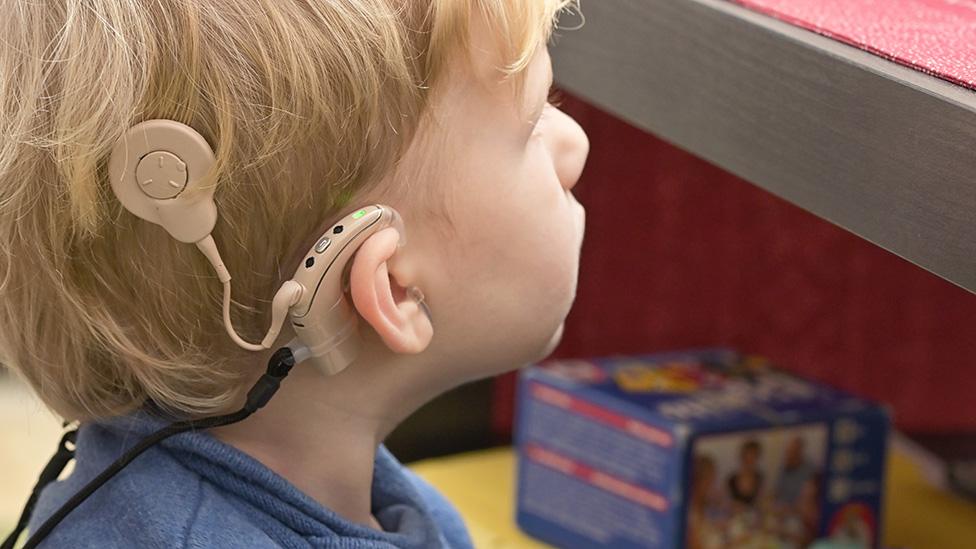Multiple failures in Scotland's audiology services, report finds
- Published
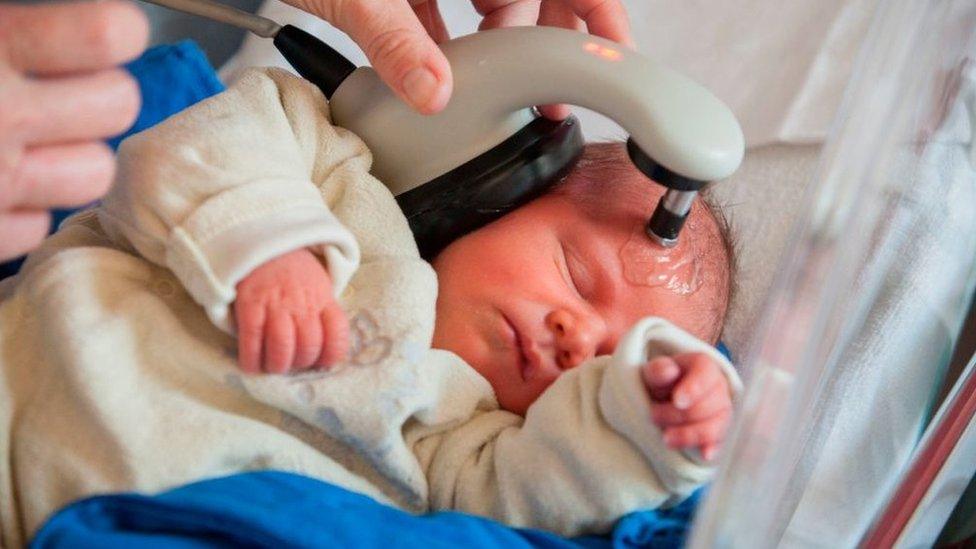
The review highlighted issues with the quality of auditory brainstem response (ABR) testing
Multiple, systematic problems have been found in Scotland's audiology services, according to an independent review.
It raised concerns over staffing and the quality of testing to identify deafness in very young children.
Commissioned by First Minister Humza Yousaf when he was health secretary, it made more than 50 recommendations, external to improve services.
The Scottish government said it was already taking action with increased funding for staff training.
The review came after failings were identified in the care of 155 children at NHS Lothian.
The National Deaf Children's Society said the report painted a "deeply concerning picture" of the state of audiology in Scotland.
Mark Ballard, from the society, said it was "alarming" that issues were identified in the quality of auditory brainstem response (ABR) testing at every single health board in Scotland.
"We know deaf children can achieve anything that hearing children can when they get the right support, but for this to happen their deafness must be identified at the earliest opportunity," he said.
"This is why it is vitally important that children always receive high quality and effective testing and long-term support."
Prof Jacqueline Taylor, who led the review, found there was a lack of strategic planning, poor quality assurance of services and staff training, and an absence of national oversight and responsibility.
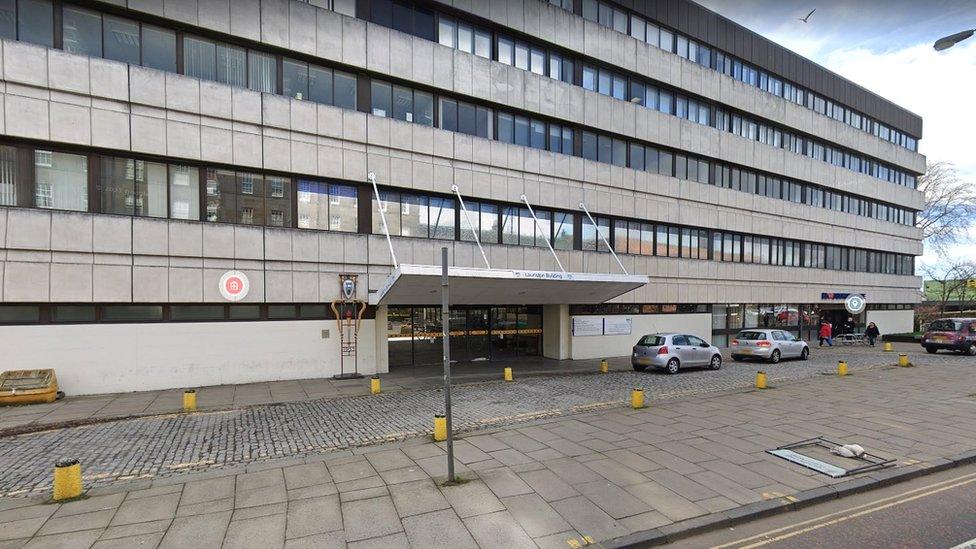
Children's audiology at NHS Lothian was based at the Lauriston building in Edinburgh
The report said patients and parents were concerned about the "customer service" aspects of audiology services.
In particular poor communication and it was "crucial" that they felt they were being listened to and believed.
Prof Taylor said:"This is not the time for a half-hearted response or for a sticking-plaster approach.
"This is a time to acknowledge the systemic issues and to use this report as the catalyst for a transformation process, which will require vision, national leadership and accountability."
One recommendation was to set up an audiology specialist advisory group to oversee child and adult audiology services and report to the Scottish government.
The report also said there was "clear evidence of workforce shortages, limited access to undergraduate and postgraduate training programmes and few opportunities for continuing professional development."
She concluded: "There are multiple, systemic problems within audiology services in NHS Scotland. Resolving these requires a whole-system approach."
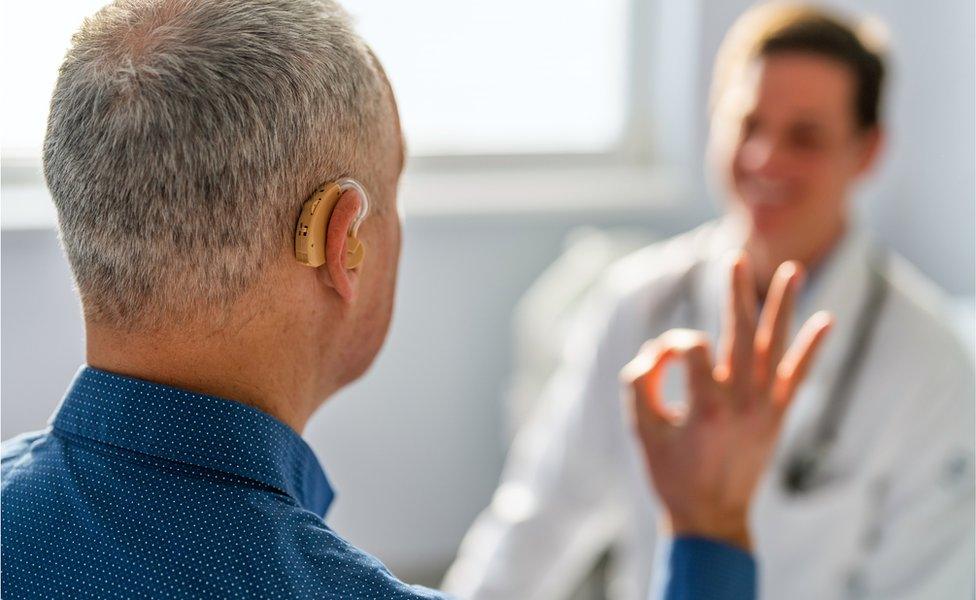
The report said it was time to acknowledge "systemic issues"
With an estimated 70% of over-70s having some degree of hearing loss, and with one or two babies in every 1,000 born with hearing loss, the report said there was a "once-in-a-generation opportunity" to develop improved services for patients.
Public Health Minister Jenni Minto said: "We must recognise that many families were badly let down by these services in the past.
"This report's recommendations will help ensure that is not allowed to happen again.
"Some of the recommendations are in areas where we are already taking action, such as increased funding for staff training.
"We will fully consider the findings and set out the next steps to parliament in the coming months."
'Life-changing consequences'
Mr Ballard from the National Deaf Children's Society added: "This report was commissioned after significant failures were uncovered at NHS Lothian involving more than 150 children over nine years.
"Some of those children suffered life-changing consequences, because their deafness was identified too late for them to get the surgery or communications support they needed.
"There must be no more similar failures."
Lucy Sherwood, a parent from Flaag (Families failed by Lothian Audiology Action Group) said that following the "catastrophic failings" at NHS Lothian, the report "sets out in grim detail how audiology services are under-resourced, badly trained, and unaccountable".
She added: "The government need to prioritise audiology because the consequences for deaf children of department failure is devastating to children's future life chances."
- Published23 June 2022
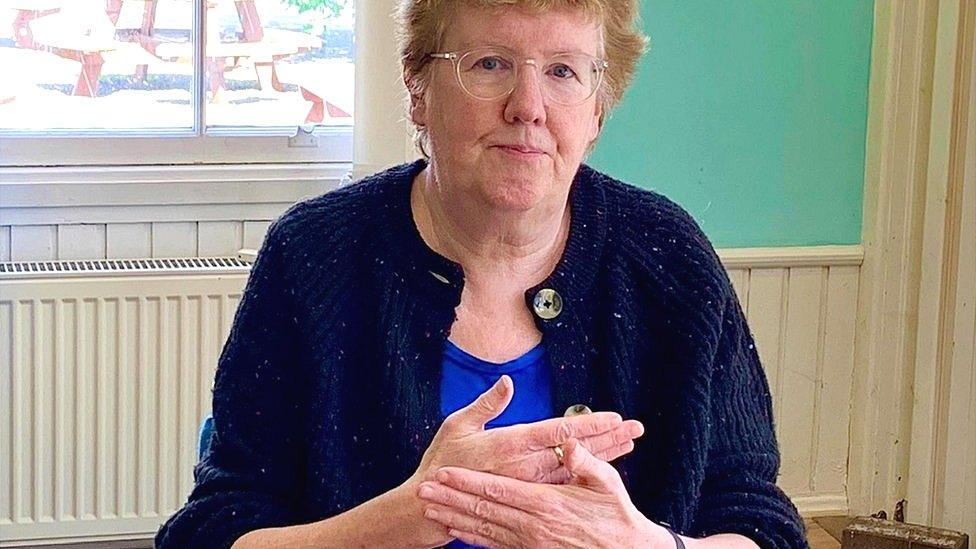
- Published8 June 2022
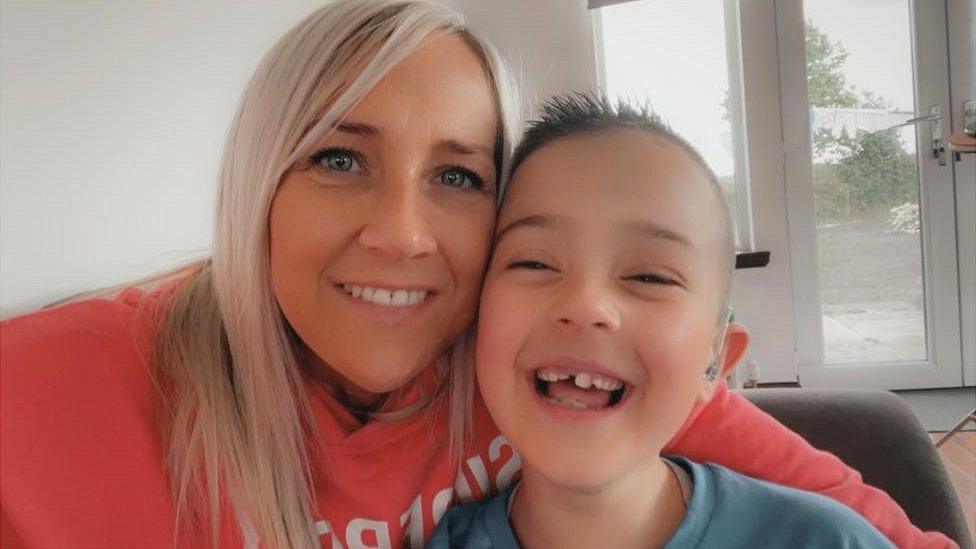
- Published2 March 2022
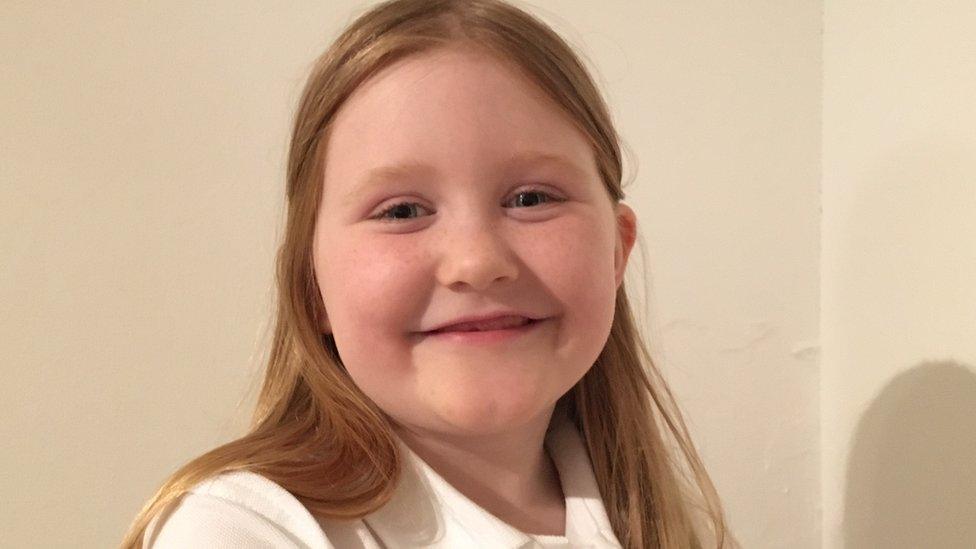
- Published9 December 2021
